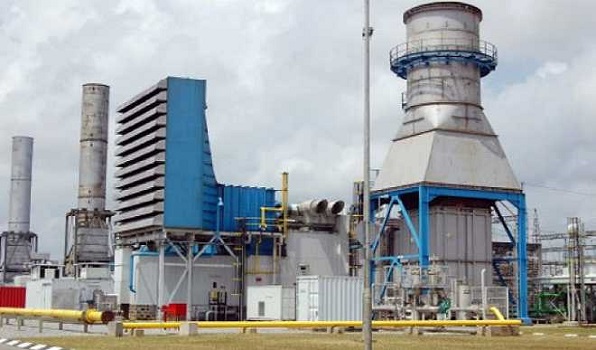Business
Inaccurate data, government interference affecting power supply – GenCos

Electricity generating companies in the country, GenCos, has identified inaccurate date, government interference and inefficiency as a he major factors responsible for the sorry state of power supply in the country.
The power generating companies stated this in a report by them on the power sector, explaining that there is an urgent for the total overhauling of the sector.
It stated: “From research, developed nations differ from underdeveloped (third world) countries of the world majorly on data.
“Investments for the growth of the generation sub-sector did not depend on the returns from the distribution sub-sector. Investments to improve data quality and adequacy in all sub-sectors of the industry, with the priority being the distribution sub-sector for obvious reasons will solve a number of issues inhibiting the growth of the sector, especially the inability of the DISCOs to make capital investments.
“Government’s intervention through the Central Bank of Nigeria (CBN) to continue market interventions without seeking first a better understanding of the market through bankable data will be an effort in futility.”
The report also insisted that the sectors’ development was tied to the demand chain.
“The determinant of whether power generation should increase or not, is the demand side of it. Electricity supply is closely tied to demand and facilitated through a pool where the output from all generators are aggregated and scheduled to meet demand.
“This is because the storage mechanism for electricity generated is in view. Hence supply must vary dynamically with changing demand. Statistics from the Nigerian system operator on load demand over the last three months average over 22,000MW. This means that there is a suppressed demand of over 17,000MW compared to what is being generated today. This could potentially escalate when there is stability of supply and high ticket consumers who are self-generating decide to join up. How do we plug this gap?”
Revealing what seems to be an unfortunate power situation in the country, the report stated: “Currently Nigeria has installed capacity that is over 13,000MW, available generation that is over 7,500MW and average generation that is about 4,000MW. On October 22nd 2018, average energy sent out was 3,854MWh/hour peak Generation attained on October 22nd, 2018 – 4,729MW.
“This shows low/minimal optimization of generation capacity due to constraints on the transmission and distribution networks. Without these constraints, additional 3,000MW could be made available to customers, and also serve as an incentive for GENCOs to recover the unavailable capacity of over 5,000MW.”
The report however stated that the electricity market has the potential to absorb significant investments and provide rewarding returns on those investments provided government interference is stopped and the market is allowed to run competitively.
“The lack of sanctity of contracts has resulted in huge debt burden on the GENCOs who are never fully paid for power generated and supplied to the market. In addition to the points above, it is imperative to note, that: “Successor/Legacy GENCOs, signed a performance agreement with the Bureau of Public Enterprises (BPE) with performance targets in recovering capacity.
“All Generation companies signed Power Purchase Agreement (PPA) with the Nigerian Bulk Electricity Trading Plc or Bulk Traders (NBET) with associated obligations on contracted quantities. Hence, the market should be very much aware of these obligations so as to enable performance of all parties.”
On the transmission aspect of the power situation, the report stated: “To optimize the current generation capacity, planning becomes pivotal, taking into cognizance the gestation period for power development.
“There is a need for massive investment in transmission and distribution networks in the country. Power GENCOs have the capacity to increase their output in the near term.
“However, an increase in power generation without a resultant increase in TCN’s wheeling capacity and improved distribution infrastructures will continue to lead to stranded power generation. Nigeria has about 13,000, MW, of installed capacity, a transmission capacity of about 5,000MW and distribution that hovers between 3,500 and 4,200MW.
“A further challenge is the constant request from the System Operator to make the GENCO power plants operate at base load contrary to their design to operate optimally and efficiently at base load. Operations of these turbines far away from their base loads imply a reduction in efficiency or in other words an increase in consumption of gas (for the thermal) by as much as 15-20percent!, a cost not captured or contemplated by MYTO.
“Electricity generating companies are faced with: financial, operational, construction, market, macroeconomic, contract and regulatory risks in the NESI today.
“GENCOs are caught in the middle of a weak transmission network and a poor commercial market structure. If answers can be given to GENCOs most pressing/pertinent questions such as; can we be fully dispatched? Can we get gas? Who is paying for the power? What is the clear line of sight for collection and remittance? Then, power supply issues of the nation will be a thing of the past.”
Join the conversation
Support Ripples Nigeria, hold up solutions journalism
Balanced, fearless journalism driven by data comes at huge financial costs.
As a media platform, we hold leadership accountable and will not trade the right to press freedom and free speech for a piece of cake.
If you like what we do, and are ready to uphold solutions journalism, kindly donate to the Ripples Nigeria cause.
Your support would help to ensure that citizens and institutions continue to have free access to credible and reliable information for societal development.
























